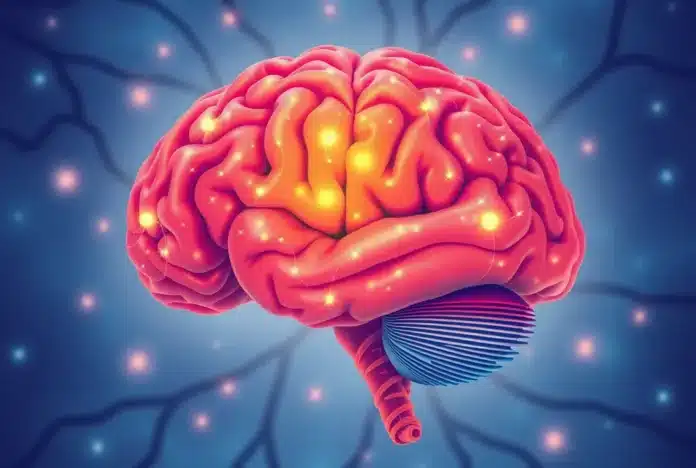Artificial intelligence (AI) is rapidly transforming industries, and software development is no exception. The prediction that AI will write the majority of software code in the near future is both exciting and unsettling. While developers will remain essential, their role will evolve as automation takes over many of the mundane aspects of coding. In this article, we’ll explore how soon this shift might happen, what the implications are for developers, and the potential upsides and downsides of a future where AI is responsible for most of the coding.
The Rise of AI-Generated Code: How Soon Will It Happen?
The idea that AI will write most software code is gaining momentum, and many experts agree that this change could be just around the corner. In fact, we’re likely only 1-2 years away from seeing AI-driven coding tools become more widely adopted in the software industry. The key, however, lies in understanding the nuances of automation in this context. AI will not eliminate the need for human developers; rather, it will change their responsibilities.
76% of all respondents are using or are planning to use AI tools in their development process this year, an increase from last year (70%). Many more developers are currently using AI tools this year, too (62% vs. 44%).
Source: https://survey.stackoverflow.co/2024/ai/
AI systems like OpenAI’s Codex and GitHub’s Copilot have already demonstrated their ability to generate code based on natural language descriptions, helping developers write faster and with fewer errors. These tools are in their early stages, but their potential to revolutionize the software development process is undeniable. As AI improves, its capacity to automate larger portions of the coding process will increase, reducing the manual workload for developers. However, developers will still play a crucial role in guiding AI, shaping the overall design, and ensuring the quality and security of the code.
What Will the Role of Developers Look Like?
While AI may take over the bulk of the actual code writing, developers will remain vital in overseeing AI’s output and driving the broader software development strategy. Instead of writing every line of code, developers will focus on managing AI systems, ensuring the code aligns with the desired functionality, and troubleshooting where AI falls short.
Reskilling will be critical in this new environment. Developers will need to learn how to interact effectively with AI tools, understanding how to craft inputs (prompts) to get the best outputs from the AI. Additionally, developers will need to sharpen their design skills, as their primary role will shift toward guiding the overall architecture of software systems and ensuring that the AI-generated code fits into the larger picture. They will also need to stay ahead of evolving AI capabilities, learning to identify and correct potential biases or security vulnerabilities that the AI might inadvertently introduce.
Implications of AI-Driven Coding: Efficiency, Reskilling, and Human Oversight
As AI takes on more of the coding work, software development could become significantly more efficient. Tasks that once took days or weeks to complete could be done in a fraction of the time. This would be a major boon for businesses, allowing them to develop and deploy new applications faster than ever before. However, these advances also come with a set of challenges that developers and organizations will need to navigate.
Efficiency Gains
The most obvious benefit of AI-generated code is the speed and efficiency it brings to the development process. AI can process vast amounts of data and generate code at an unprecedented pace, reducing the time spent on repetitive or boilerplate tasks. This allows developers to focus on higher-level tasks, such as defining project goals, planning system architectures, and addressing complex challenges that AI is not yet capable of handling.
AI’s ability to quickly write code also has the potential to improve the quality of early-stage software. AI tools can be trained to follow best practices and avoid common mistakes, reducing the number of bugs in early iterations of a project. By automating routine tasks and handling early bug fixes, AI can give developers more time to focus on innovation and refinement.
The Importance of Reskilling
While AI will handle more coding tasks, developers will need to acquire new skills to stay relevant. Reskilling will be essential as developers transition from writing code to managing and guiding AI systems. The skillset of a modern developer will expand to include proficiency with AI-driven tools, understanding machine learning models, and fine-tuning AI outputs to meet project requirements.
A major part of reskilling will involve learning how to craft effective prompts and queries to guide AI-generated code. Developers will need to think critically about how they communicate their goals to AI systems and ensure that the code produced is functional, secure, and optimized. This will require a combination of technical expertise, creativity, and an understanding of how AI tools work under the hood.
Human Oversight and Quality Control
One of the biggest risks of relying too heavily on AI-generated code is the potential for mistakes or oversights. AI, for all its power, does not truly “understand” the code it generates in the same way a human developer would. As a result, AI may produce code that is functionally correct but does not account for nuances such as security, scalability, or user experience.
This is where human oversight becomes crucial. Developers will still need to review AI-generated code for potential issues, ensuring that it meets the project’s standards and is free from security vulnerabilities or biases. Human intuition, creativity, and domain knowledge will continue to be essential in refining AI-driven projects.
Upsides and Downsides of AI Writing Most Code
As with any major technological shift, there are both upsides and downsides to AI taking over the bulk of software coding.
Upsides: Speed, Innovation, and Early Bug Fixes
The primary upside of AI-driven coding is speed. AI can significantly reduce the time it takes to develop software, allowing companies to bring products to market faster. This is especially beneficial for startups or teams working on tight deadlines, where quick iteration and deployment are key to success.
Another advantage is innovation. With AI handling routine coding tasks, developers can focus more on creativity and higher-level problem-solving. AI can act as a powerful assistant, helping developers explore new ideas and push the boundaries of what’s possible.
Finally, AI’s ability to catch early bugs can improve the quality of software in its initial stages. By adhering to best practices and avoiding common mistakes, AI can reduce the number of errors developers need to address later in the process, leading to more reliable and robust software.
Downsides: Skill Loss, Security Risks, and Bias
One of the major downsides of relying too heavily on AI for coding is the potential loss of basic coding skills. If developers no longer need to write code manually, they may lose touch with the fundamental principles of programming. Over time, this could erode the expertise needed to troubleshoot complex problems or innovate new solutions.
Security risks are another concern. AI-generated code may not always account for the latest security best practices, leading to vulnerabilities that could be exploited by hackers. Without careful oversight, there’s a risk that AI could introduce insecure code that puts users or businesses at risk.
Lastly, AI can unintentionally introduce bias into the code it generates. If the training data used to build AI models contains biases, those biases can be reflected in the code. This can lead to unfair or discriminatory outcomes, particularly in applications that involve user interactions or decision-making algorithms. Developers will need to be vigilant in identifying and correcting these biases to ensure ethical AI systems.
A New Era of Software Development
The future of software development is undoubtedly intertwined with AI. While the prediction that AI will write most software code may sound alarming at first, it represents an exciting opportunity for developers to shift their focus from repetitive tasks to more strategic and creative work. However, the transition will require reskilling, human oversight, and a careful balance between embracing the efficiencies of AI and maintaining the essential skills that make developers indispensable.
As AI-driven tools become more widespread in the next few years, developers and organizations will need to adapt. Those who can effectively guide AI, ensure the quality of AI-generated code, and innovate in this new landscape will thrive in a rapidly changing industry. The age of AI-written code is coming, but it will still be human expertise that shapes the future of software development.


